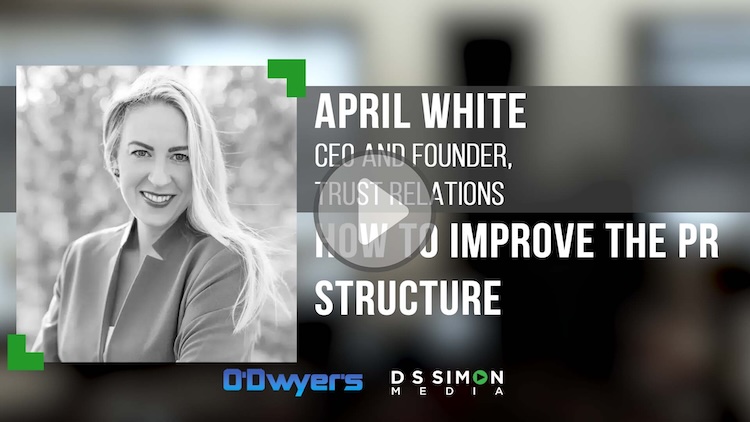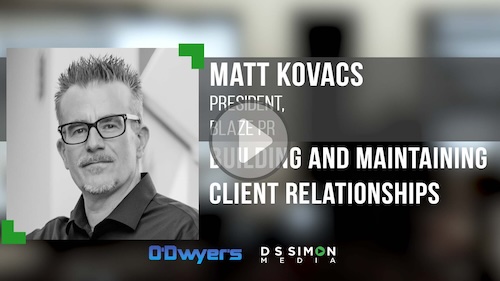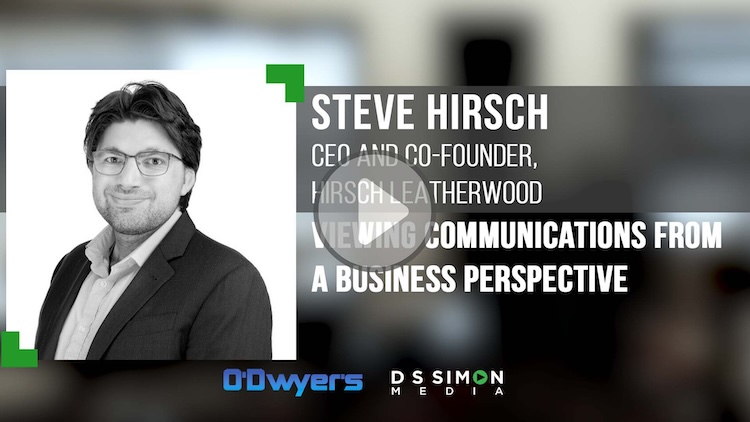|
|
And there are many equally-distinguished PR professors — among them, Fred Garcia at NYU, Denise Hill and John Doorley at Elon, Jay Rayburn at Florida State, Barry Zusman at LIM and Jeff Morosoff at Hofstra.
Each year, Prof. Morosoff assigns students to seek out PR professionals to answer relevant questions on ethics. Here’s how one practitioner answered this year’s batch of PR ethics questions. See if you agree.
Why is it important to always tell the truth in PR?
All one has in public relations is his or her reputation, credibility. Once you lie and you’re found out — and you will be found out — you lose that. And no one with whom you do business — reporter, client, potential employer, etc. — will look at you the same way after you’re caught in a lie. Truth, therefore, is paramount in public relations.
Why do some communications practitioners spin the truth instead of coming clean with the actual information?
Perhaps, as Jack Nicholson said in “A Few Good Men,” they “can’t handle the truth.” More likely, they’re reluctant to reveal unpleasant or bad news about the client or the client doesn’t want them saying anything troubling. But it’s eminently preferable to say nothing than to lie. Again, once caught, no one will ever trust you or the client.
What values are the most important to do the public relations job?
A bias toward disclosing rather than withholding information.
An advocacy or belief in your employer.
A compelling desire to advise/counsel senior managers in proper action and communications.
An absolute commitment that the counsel you deliver is always ethical.
A willingness to take risks, to stick your neck out.
An always logical, but also positive, predilection.
How much of a role does PR ethics play in daily work?
Ethics, or stated another way, “doing the right thing,” must be the anchor of every decision you make in public relations.
Why are PR practitioners referred to as “spin doctors?”
They are referred to as “spin doctors” because they appear to have a mentality — or do have a mentality — of doing whatever the client tells them to do; whether right or wrong, fair or unfair, honest or dishonest. That’s a recipe not only for professional disaster but also for an unhappy practitioner.
Why does the good work of PR people often go unnoticed?
Public relations work is not as noticed because the work of PR professionals should be anonymous. If you write the CEO’s speech, and it’s a winner, it’s the CEO, correctly, who should get the credit, not you. Public relations people generally toil in anonymity. But as long as the client appreciates — and pays for — your contribution, that’s what counts.
For those individuals and companies who still believe that spinning the truth will not result in consequences, what would you say to them?
Be afraid; be very afraid.
* * *
Fraser P. Seitel has been a communications consultant, author and teacher for 40 years. He may be reached directly at [email protected]. He is the author of the Prentice-Hall text The Practice of Public Relations, now in its 12th edition, and co-author of Rethinking Reputation and Idea Wise.











 Have a comment? Send it to
Have a comment? Send it to 
No comments have been submitted for this story yet.